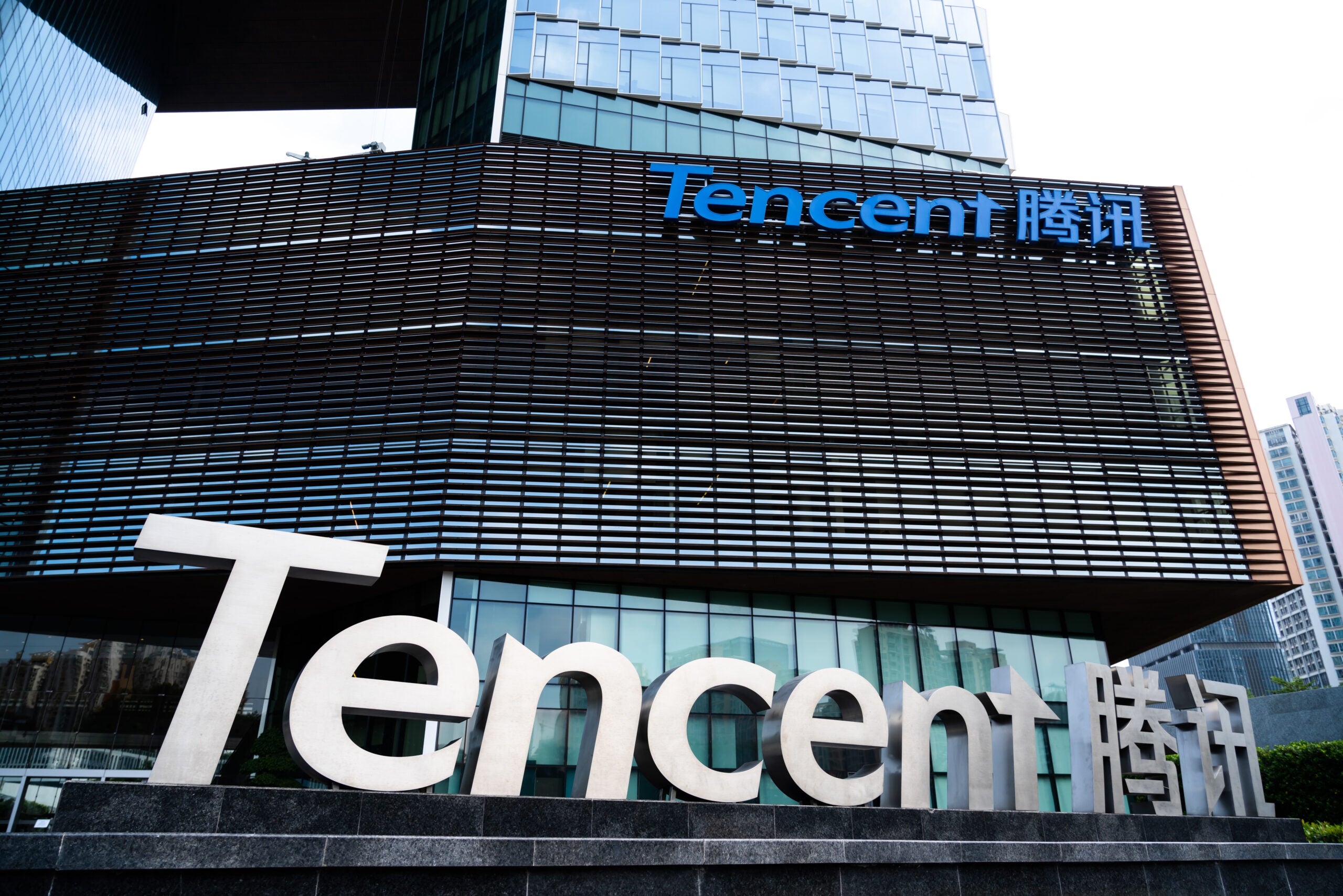
Chinese tech giant Tencent has announced that it will set aside 50bn yuan ($7.7bn) for a “common prosperity” fund. The news comes one day after President Xi Jinping made common prosperity a key economic and social goal for China, indicating that Tencent is willing to adapt to China’s changing regulatory climate.
According to the statement, the fund will integrate “Tencent’s digital and technological capabilities” to provide assistance in several areas, including the development of rural regions, low-income groups, primary medical assistance and grassroots education.”
In April, the social media and gaming giant, under scrutiny from regulators, had already pledged 50bn yuan to promote “sustainable social value innovation”. In total, the company has now dedicated 100bn yuan for economic and social development.
“As a Chinese technology company that has matured amid the tide of reform and opening up, Tencent is constantly thinking about how to rely on its technology and digital capabilities to help society’s development,” the statement read.
The announcement was publicised at midnight on Wednesday, a few hours after its second-quarter earnings call. Moreover, it came only a day after President Xi Jinping put the theme of “common prosperity” on top of China’s development agenda.
At a key economic leadership meeting on Tuesday, Chinese leaders said China must pursue a goal of “common prosperity” where people share in the opportunity of obtaining wealth. Following the economic development of the country, the next stage is to look after those who are not yet wealthy, President Xi Jinping said.
How well do you really know your competitors?
Access the most comprehensive Company Profiles on the market, powered by GlobalData. Save hours of research. Gain competitive edge.

Thank you!
Your download email will arrive shortly
Not ready to buy yet? Download a free sample
We are confident about the unique quality of our Company Profiles. However, we want you to make the most beneficial decision for your business, so we offer a free sample that you can download by submitting the below form
By GlobalDataTencent’s quick reaction shows that it is adapting to China’s new regulatory ecosystem. “Tencent is the headline case of China’s biggest internet company adjusting to the new social contract and regulatory infrastructure that the Party is creating as the details become clearer,” said Michael Orme, senior analyst at GlobalData and China specialist.
This shows that a new trend may be emerging in China, whereby companies are expected to play a more significant role in addressing social injustice.
“Xi has made clear that wealth redistribution via donations by the richest companies and individuals is now expected, hence Tencent’s $7.7bn move and recent moves by the founders of Meituan and Xiaomi, among others, to make substantial donations to social causes,” Orme explained.
Tencent was founded by Pony Ma Huateng in 1998 when there was little to no regulation surrounding internet companies and no monopolies hampering the industry. Now, Tencent, like many other Chinese tech giants, is being accused of monopolistic practices and hobbling small businesses.
As a result, the government is establishing new rules to rectify the imbalances, inequalities and abuses that resulted from the unrestricted growth of tech conglomerates such as Tencent.
“There is nothing arbitrary about what is happening,” says Orme. “At base, a great rebalancing of the Chinese economy and society is underway with ‘the rule of law governance’ Xi’s policy for the next phase.”
Turning tides for Tencent
According to GlobalData’s intelligence centre, Tencent reported revenues of 482bn yuan ($70m) for the fiscal year ended December 2020. Despite the ongoing crackdown on the tech industry, the company remains one of the most profitable companies in China. Its revenue rose 20% to 138.3bn yuan ($21.3bn) for the three months ended June with 42.6bn yuan profits.
However, following the rising uncertainty in the Chinese video game sector, the country’s largest gaming company is counting on other business segments for profit. Its fintech and cloud segments stood out as the main drivers of growth for the quarter.
Fintech and business services revenue increased to 41.9bn yuan, up 40% year-on-year. The strength of fintech services reflected increasing digital payment transactions.
In its second-quarter financial report, Tencent showed that the proportion of game turnover for players under 16 accounted for 2.6%. For players under the age of 12, this number was 0.3%. This indicates that the recent measures to curb gaming practices among minors are taking effect.
Given the government’s aim to control the growing problem of game addiction among Chinese children, Tencent implemented rigorous restrictions on some of its games.
It first began tightening gaming practices in 2017 by restricting children to a few hours of gameplay, adding payment caps and parental locks alongside a digital 9pm sign-in curfew. The move was made onto one particularly popular mobile game called Kings of Glory, a title so beloved that once Tencent’s restrictions were announced, the company saw a 4.13% trading slump the same day.
More recently, the company started deploying so-called Midnight Patrol facial recognition to stop minors from breaking curfew. This technology checks on players going on a gaming binge after the cut-off time or spending a certain amount of credit using facial recognition.
If the face matches the right government ID, then the player can continue. If not, or if the player doesn’t consent to the scan, then they are kicked off the game.
Tencent vs ByteDance
In a separate instance, Tencent Video is taking Douyin, the Chinese version of TikTok, to court for allowing its users to upload clips from the internet giant’s hit TV series Crime Crackdown and airing them without authorisation. The court accepted the case on Tuesday.
The legal battle underscores the growing competition between Tencent and ByteDance, Douyin’s parent company. In addition, it also highlights the battle between long and short video platforms, which has been going on since the start of this year.
In April, 53 film and television companies, five video platforms and 15 film and television industry associations issued a joint statement, announcing that centralised and necessary legal rights protection actions will be launched against unauthorised editing, cutting and dissemination of film and television content on the Internet.




